Books
Sample Chapter Available
Blockchain Politics
Ideology and the Crisis in Social Trust
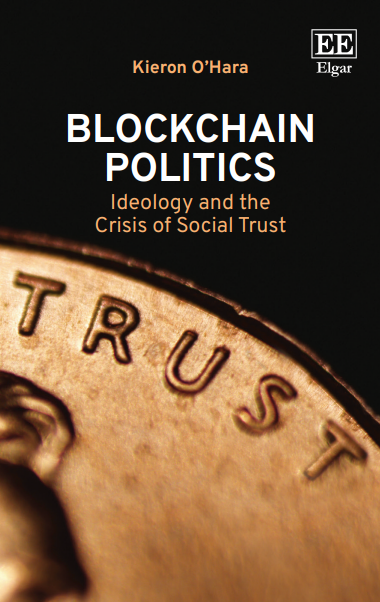
Likening contemporary extremes of far-right populism and identity politics to 17th century Peasants and Puritans, Blockchain Politics examines the enduring importance of trust in political life. Kieron O’Hara develops a new theory of trust to analyse how these extremes undermine social accord and weaken representative democracy, and to suggest remedies.
Open Access
Dictionary of Privacy, Data Protection and Information Security
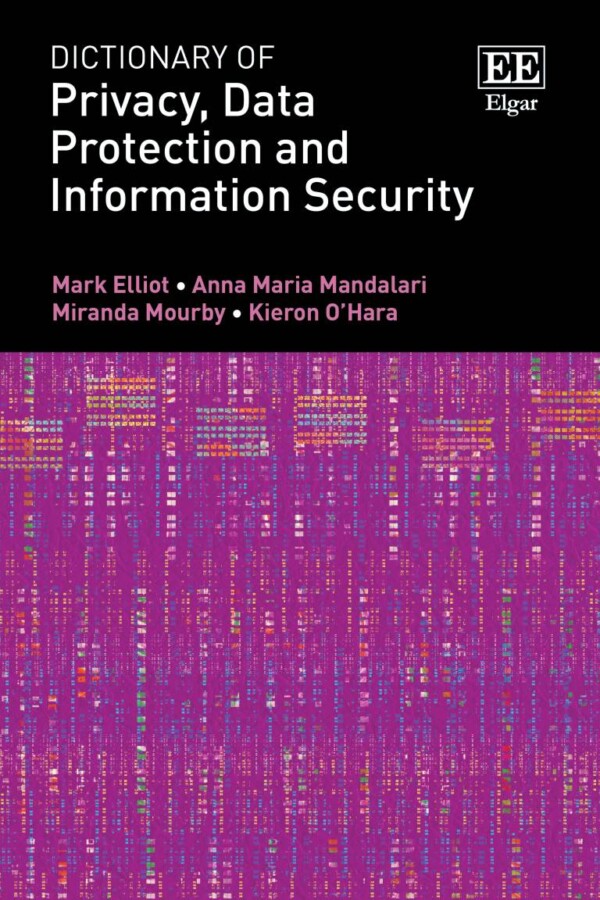
The Dictionary of Privacy, Data Protection and Information Security explains the complex technical terms, legal concepts, privacy management techniques, conceptual matters and vocabulary that inform public debate about privacy.
Interdisciplinary in scope, this Dictionary is invaluable to students, scholars and researchers in law, technology and computing, cybersecurity, sociology, public policy and administration, and regulation. It is also a vital reference for diverse practitioners including data scientists, lawyers, policymakers and regulators.
Now in Paperback
The Seven Veils of Privacy
How Our Debates About Privacy Conceal Its Nature
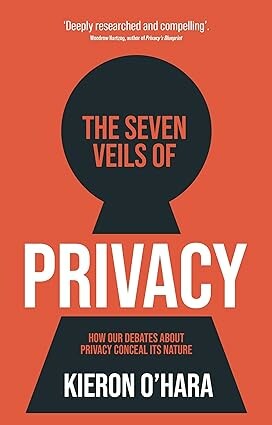
In this book, Kieron O’Hara reveals that much of the conflict around privacy results from taking different perspectives that veil key assumptions and disguise points of agreement. Focusing on the seven most important of these perspectives, he offers a framework for negotiating this important but complex topic.
Expertly blending insights from philosophy, history, sociology, law, computing and politics, and with plenty of real-world examples, O’Hara’s The Seven Veils of Privacy is both an ideal introduction to the field, and a challenging critique of it.
Free Download!
Digital Modernity
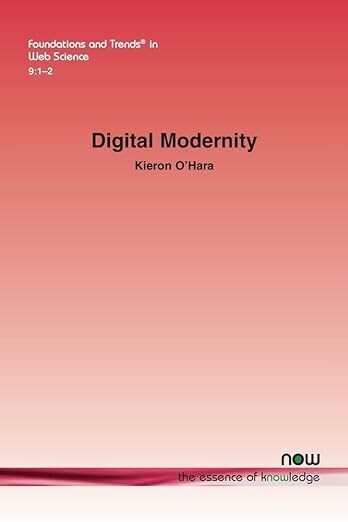
This monograph reviews narratives of digital modernity, which selectively discuss aspects of our sociotechnical context, descriptively, teleologically or normatively. Digital modernity narratives focus on the possibilities of the data gathered by an ambient data infrastructure, enabled by ubiquitous devices such as the smartphone, and activities such as social networking and e-commerce. Some emphasise continuities with 20th century modernity narratives, while others emphasise discontinuity, such as theories of the singularity. Digital modernity is characterised by: a subjunctive outlook where people’s choices can be anticipated and improved upon; the valorisation of disruptive innovation on demand; and control provided by data analysis within a virtual realm (cyberspace or the metaverse) which can be extended and applied to the physical world (in such applications as the quantified self and the smart city). The synergies and tensions between these three aspects are explored, as are the opportunities for and dilemmas posed by misinformation.
Four Internets
Data, Geopolitics, and the Governance of Cyberspace
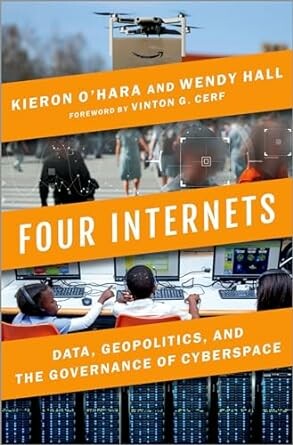
Four Internets offers a revelatory new approach for conceptualizing the Internet and understanding the sometimes rival values that drive its governance and stability. It contends that the apparently monolithic “Internet” is in fact maintained by four distinct value systems—the Silicon Valley Open Internet, the Brussels Bourgeois Internet, the DC Commercial Internet, and the Beijing Paternal Internet—competing to determine the future directions of internet affordances for freedom, innovation, security, and human rights.
Open Access
The Anonymisation Decision-Making Framework
European Practitioners' Guide
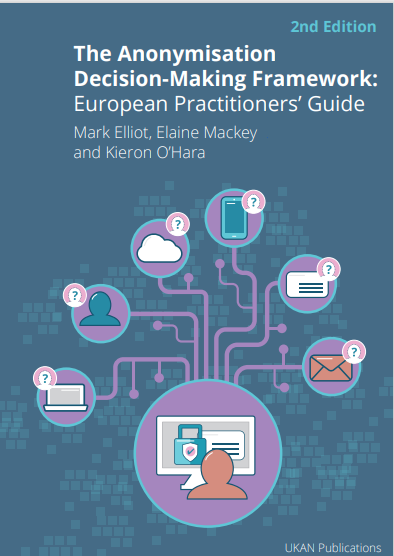
The ADF provides a way of thinking about anonymisation and the reuse of personal data that breaks out of the constraints of overly technical or overly legal framings of the problem. Effectively anonymising data whilst still remaining compliant with GDPR is possible, given a suitable framework and set of tools. GDPR is intended to facilitate proper and appropriate data sharing and reuse as well as protecting data subjects. The ADF provides a mechanism for realising both of these ambitions.
Life and the Law in the Era of Data-Driven Agency
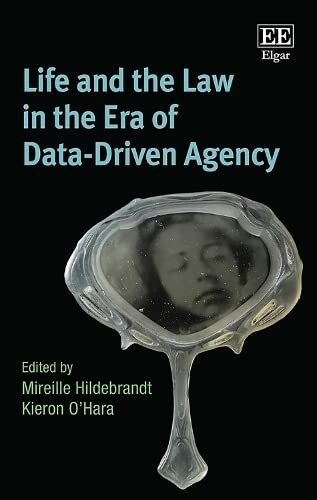
This ground-breaking and timely book explores how big data, artificial intelligence and algorithms are creating new types of agency, and the impact that this is having on our lives and the rule of law. Addressing the issues in a thoughtful, cross-disciplinary manner, leading scholars in law, philosophy, computer science and politics examine the ways in which data-driven agency is transforming democratic practices and the meaning of individual choice.
The Theory and Practice of Social Machines
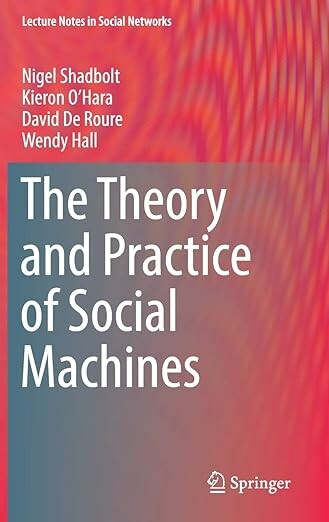
Social machines are a type of network connected by interactive digital devices made possible by the ubiquitous adoption of technologies such as the Internet, the smartphone, social media and the read/write World Wide Web, connecting people at scale to document situations, cooperate on tasks, exchange information, or even simply to play. Existing social processes may be scaled up, and new social processes enabled, to solve problems, augment reality, create new sources of value, and disrupt existing practice.
Open Access
The De-Identification Decision-Making Framework
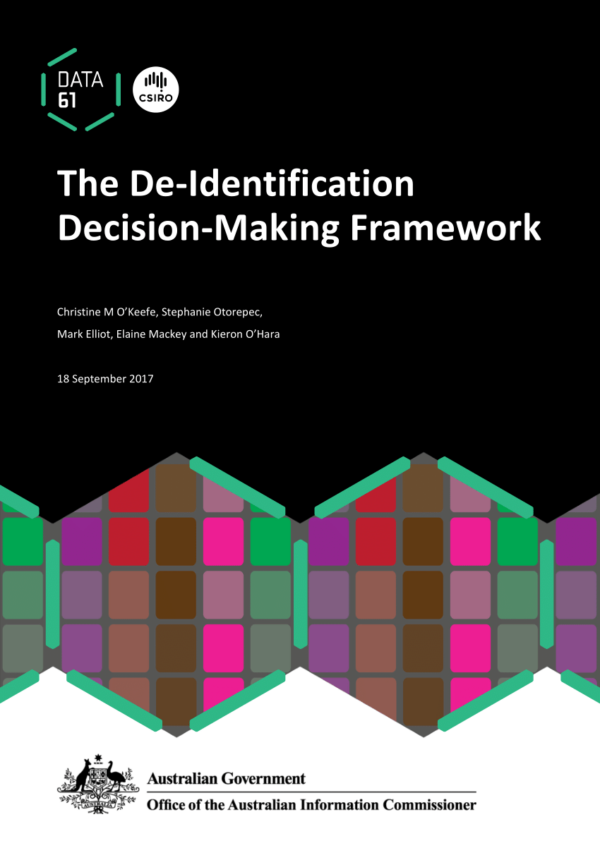
The De-Identification Decision-Making Framework is an adaptation to the Australian context of the
UK resource The Anonymisation Decision-Making Framework, and is the result of a close
collaboration of CSIRO and the Office of the Australian Information Commissioner, with input from
the Australian Bureau of Statistics and the Australian Institute of Health and Welfare. The
adaptation has required revisions due to differences in the legal frameworks, the use of Australian
examples and terminology, and minimal additional changes.
The Devil’s Long Tail
Religious and Other Radicals in the Internet Marketplace
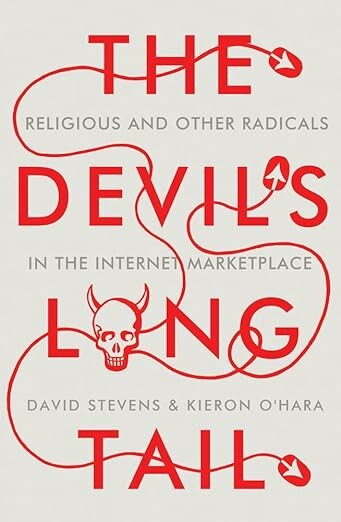
In The Devil’s Long Tail, Stevens and O’Hara argue that we misunderstand online extremism if we think intervention is the best way to counter it. Policies designed to disrupt radical networks fail because they ignore the factors that push people to the margins. Extremists are driven less by ideas than by the benefits of participating in a tightly-knit, self-defined, group. Rather, extreme ideas should be left to sink or swim in the internet’s marketplace of ideas.
Free Download!
Web Science
Understanding the Emergence of Macro-Level Features on the World Wide Web
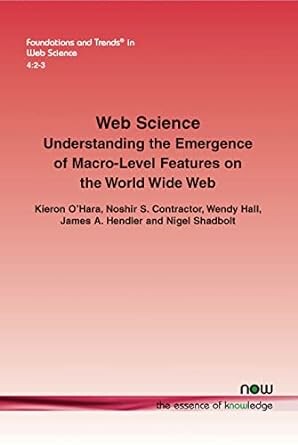
Understanding the Web is a problem on a par with other complex scientific challenges such as climate change or the human genome. The requirement for understanding should ideally be accompanied by some measure of control, which makes Web Science crucial in the future provision of tools for managing our interactions, our politics, our economics, our entertainment, and – not least – our knowledge and data sharing. The Web is a critical infrastructure that underpins increasingly many of our transactions, and yet is barely understood by policymakers. The theme of emergence is discussed as the characteristic phenomenon of web-scale applications, where many unrelated micro-level actions and decisions, uninformed by knowledge about the macro-level, still produce noticeable and coherent effects at the scale of the Web.
Huxley
A Beginner's Guide
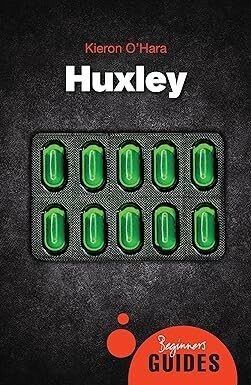
Author of Brave New World and The Doors of Perception, and inventor of the term ‘psychedelic’, Aldous Huxley was a global trend-setter ahead of his time. In this study Dr Kieron O’Hara explores the life of this great visionary, charting his transformation from society satirist to Californian guru-mystic through an insightful analysis of his life’s work. Combining thoughtful biography, easy-to-use reading notes, and an insightful exploration of Huxley’s continuing legacy, Huxley: A Beginner’s Guide is the definitive introduction to one of the twentieth century’s most influential thinkers.
Conservatism

The real meaning of ‘conservative’ – today denoting groups as diverse and incompatible as the religious right, libertarian free-marketeers and free-spending neo-conservatives – has been lost to politics. Yet the original conservative ideology, first developed in the eighteenth century by Edmund Burke, was concerned with managing change. Kieron O’Hara argues that genuine conservatism has its own relevance in a complex and dynamic world where change is rapid, pervasive and dislocating. Conservatism transcends traditional politics, and has surprising applications – not least as the most appropriate and practical response to climate change.
The Enlightenment
A Beginner's Guide

Blamed for the bloody disasters of the 20th century: Auschwitz, the Gulags, globalisation, Islamic terrorism; heralded as the harbinger of reason, equality, and the end of arbitrary rule, the Enlightenment has been nothing if not divisive. To this day historians disagree over when it was, where it was, and what it was (and sometimes, still is). Kieron O’Hara deftly traverses these conflicts, presenting the history, politics, science, religion, arts, and social life of the Enlightenment not as a simple set of easily enumerated ideas, but an evolving conglomerate that spawned a very diverse set of thinkers, from the radical Rousseau to the conservative Burke.
Democratising Conservative Leadership Selection
From Grey Suits to Grass Roots

Democratising Conservative leadership selection traces the effects of democracy on the British Conservative Party, including analysis of the original undemocratic ‘system’ whereby a leader ’emerged’ from a shadowy process of consultation, and of the six elections between 1965 and 1997 where the parliamentary Conservative Party alone chose the Party leader. This historical perspective is followed by in-depth analysis of the three contests since 2001 that have taken place under the ‘Hague rules’, according to which ordinary Party members have the final say. This is the most comprehensive account yet published of the operation of those rules on the Conservative Party and the legitimacy of its leadership, and of the 2005 election of David Cameron.
The Spy in the Coffee Machine
The End of Privacy As We Know It
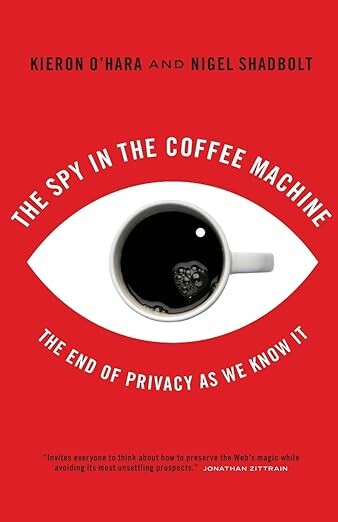
We are entering a new state of global hypersurveillance. As we increasingly resort to technology for our work and play, our electronic activity leaves behind digital footprints that can be used to track our movements. In our cars, telephones, even our coffee machines, tiny computers communicating wirelessly via the Internet can serve as miniature witnesses, forming powerful networks whose emergent behaviour can be very complex, intelligent, and invasive. The question is: how much of an infringement on privacy are they? Exposing the invasion of our privacy from CCTVs to blogs, The Spy in the Coffee Machine explores what—if anything—we can do to prevent it from disappearing forever in the digital age, and provides readers with a much needed wake-up call to the benefits and dangers of this new technology.
Joseph Conrad Today

This book argues that the novelist Joseph Conrad’s work speaks directly to us in a way that none of his contemporaries can. Conrad’s scepticism, pessimism, emphasis on the importance and fragility of community, and the difficulties of escaping our history are important tools for understanding the political world in which we live. He is prepared to face a future where progress is not inevitable, where actions have unintended consequences, and where we cannot know the contexts in which we act.
Free Download!
A Framework for Web Science
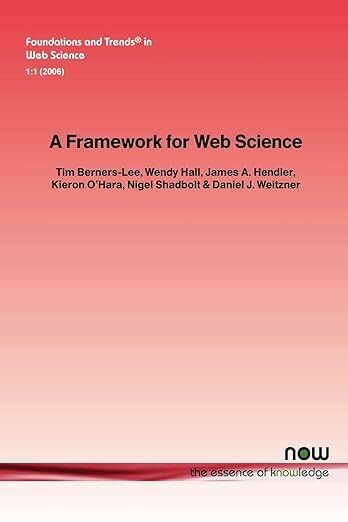
This text sets out a series of approaches to the analysis and synthesis of the World Wide Web, and other web-like information structures. A comprehensive set of research questions is outlined, together with a sub-disciplinary breakdown, emphasising the multi-faceted nature of the Web, and the multi-disciplinary nature of its study and development. These questions and approaches together set out an agenda for Web Science, the science of decentralised information systems. Web Science is required both as a way to understand the Web, and as a way to focus its development on key communicational and representational requirements. The text surveys central engineering issues, such as the development of the Semantic Web, Web services and P2P. Analytic approaches to discover the Web’s topology, or its graph-like structures, are examined. Finally, the Web as a technology is essentially socially embedded; therefore various issues and requirements for Web use and governance are also reviewed.
The Referendum Roundabout
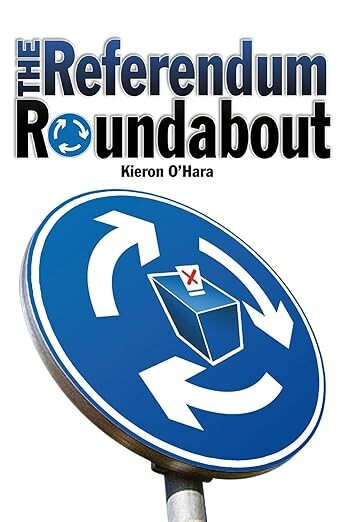
A lively and sharp critique of the role of the referendum in modern British politics. The 1975 vote on Europe is the lens to focus the subject, and the controversy over the referendum on the European constitution is also clearly in the author’s sights.
Free Download!
Plato and the Internet
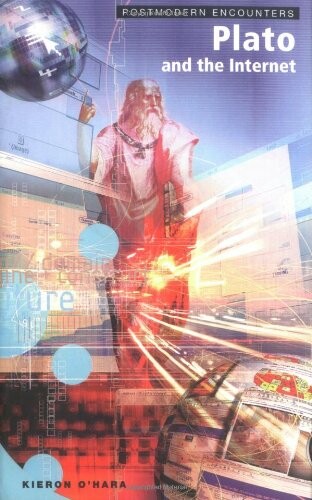
We live in a knowledge economy. Competition now straddles the world, and competitive advantage will be produced from now on by knowledge and creativity. Acquiring and managing knowledge better has become a political imperative. And yet – what is knowledge? Plato and the Internet argues that what is important is not ‘what facts you know’, but ‘what you know how to do’, and that the essential contrast is not between knowledge and belief, but between knowledge and information. Is the Internet really something new – or a continuation of the past by other means?
DPhil Thesis - Free Download!
Mind As Machine
Can Computational Processes Be Regarded As Explanatory Of Mental Processes?
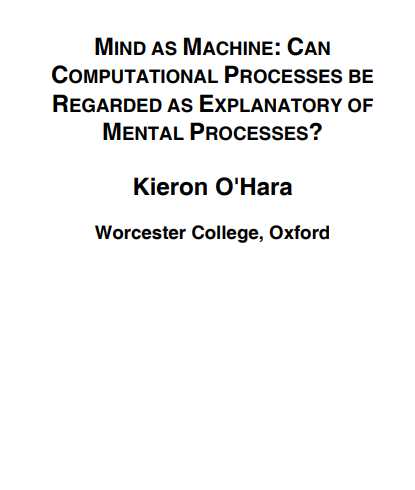
The aim of the thesis is to evaluate recent work in artificial intelligence (AI). It is argued that such evaluation can be philosophically interesting, and examples are given of areas of the philosophy of AI where insufficient concentration on the actual results of AI has led to missed opportunities for the two disciplines — philosophy and AI — to benefit from cross-fertilization. The particular topic of the thesis is the use of AI techniques in psychological explanation. The claim is that such techniques can be of value in psychology, and the strategy of proof is to exhibit an area where this is the case. The field of model-based knowledge-based system (KBS) development is outlined; a type of model called a conceptual model will be shown to be psychologically explanatory of the expertise that it models.
 Older Titles
Older Titles


After Blair
David Cameron and the Conservative Tradition
In David Cameron’s review of the first edition of this book, he praised its ‘road map for a sustained Conservative recovery’ and is now following its prescription, leading to a successful Tory revival. Revised and significantly expanded this is the first book to consider Cameron and the Tories’ future. Calling the first edition ‘a compelling, and often persuasive read’, David Cameron’s detailed review of “After Blair” has been held up by the “Guardian” as the best description of his policies yet. His strong association with the book continued when he referred to it in his famous Keith Joseph lecture last spring. In this revised and expanded edition, O’Hara places Cameron in the context of Conservative history, explaining Cameron’s intellectual and political roots in a way that no other book has. Including new, exclusive interviews with Cameron’s principal advisors and strategists, a summary of the threat from the right to the Tories’ new direction, and an analysis of Cameron’s potential, this is the essential book on British politics today.
Published by Icon Books in 2007
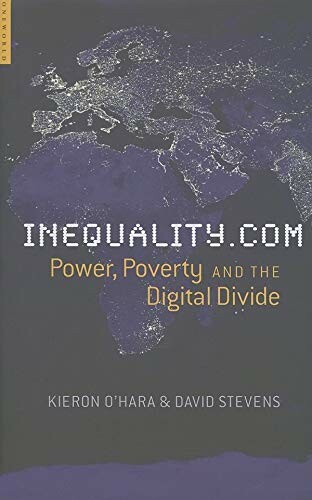

inequality.com
Power, Poverty and the Digital Divide
We can now shop, vote, congregate – some would even argue we can have sex – on an entirely new plane of existence: the Internet. While this new place provides illimitable opportunities, it also raises new concerns. In this revelatory new book, O’Hara and Stevens tackle the thorny issues which crop up in this unprecedented boundaryless, and often unregulated space. Arguing that the lack of Internet access can deprive the poor of services and information that are essential to their status as equal citizens in society, they also discuss uncertainty about future technologies undermines our personal liberty – we can never be sure how the web of information we leave around ourselves will be used in years to come. Bringing together the important social, political and philosophical issues surrounding the Internet, this book will grip the attention of anyone who wishes to understand the broader issues involved everytime they click on their web browser.
Published by Oneworld in 2006


After Blair
Conservatism Beyond Thatcher
Sets out a philosophy of conservatism that is adaptable for the post-New Labour, post-Thatcher era, based on Edmund Burke and Michael Oakeshott, and scepticism about the ability of rationalist social engineers to achieve their stated aims without risky unintended consequences. It boils conservatism down to two principles: the knowledge principle, that society is too complex and dynamic to model with any confidence; and the change principle, that rationalist thought persistently undervalues existing institutions and practices, and overvalues abstract and potential schemes, so that change always carries a risk.
Published by Icon Books in 2005
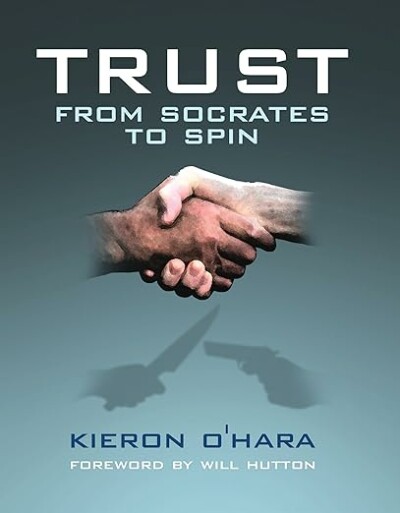

Trust
From Socrates to Spin
From Aristotle to Francis Fukuyama, Machiavelli to Naomi Klein, the Book of Job to Blairite newspeak and from Enron to nanotechnology, Kieron O’Hara presents a lively exploration of trust.
Essential for almost all social interaction, trust holds society together and makes co-operation possible. Ubiquitous, and yet deeply misunderstood, it can take years to build up, and after one false move can disappear overnight. Polls record levels of trust in politicians, businessmen, scientists and others that are at all time lows: a crisis in trust is currently gripping Western culture.
O’Hara moves easily between the great philosophers and sociologists, and the impact of this crisis in our daily lives, animating theory with in-depth case studies, helping us make sense of the daily scares in our newspapers. Is trust declining? Should we be worried? What can we do about it? O’Hara gives few easy answers in this exhilarating ride through politics, literature, philosophy and history.
Published by Icon Books in 2004
 Kieron O'Hara
Kieron O'Hara